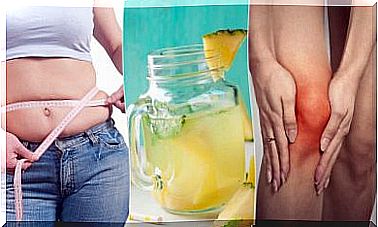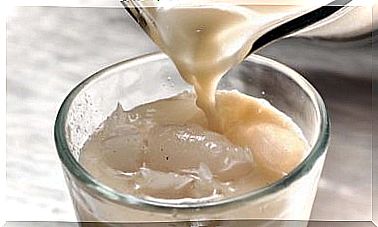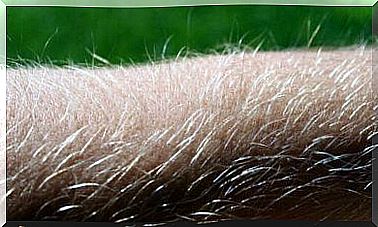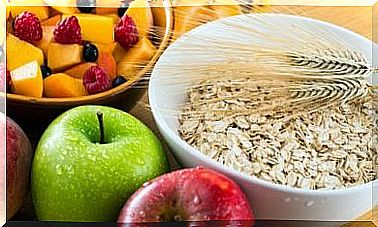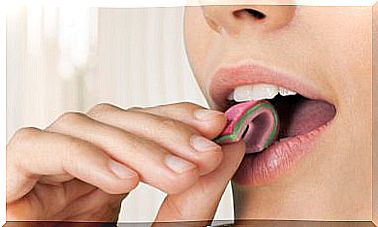6 Ways To Wash And Disinfect The Sinks In Your Home
Sinks are one of the spaces in the home where the most bacteria accumulate. This is because they are in permanent contact with moisture and, in the case of the kitchen, also with food scraps. On these occasions, knowing how to wash and disinfect the sinks in your home is extremely useful.
Hygiene in the home is very important for the health of all its inhabitants. For this reason, it is essential to give the cleanliness of each space the relevance it deserves.
In that sense, one of the protagonists is the kitchen, bathroom or laundry sink. These are sources of many bacteria, given the characteristics of their functions. We tell you how to give them shine and make sure that their hygienic treatment is appropriate.
6 ways to wash and sanitize your home sinks
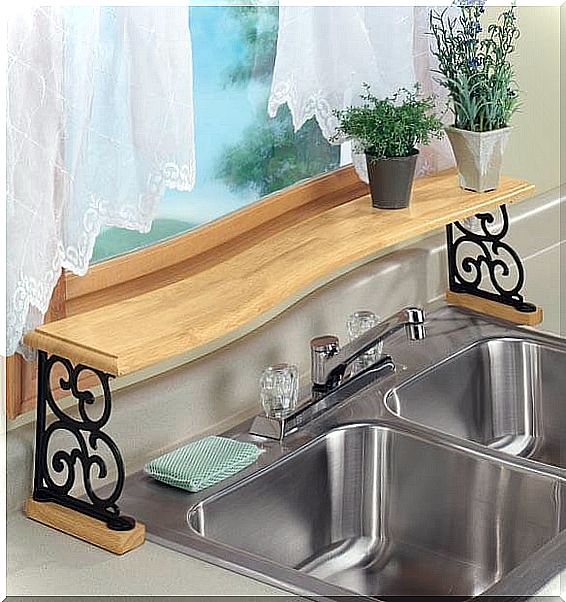
First of all, it should be mentioned that the way to wash and disinfect the sinks will depend to a great extent on their material. With this in mind, we will list some effective ways to accomplish this task.
1. Cleaning with neutral soap
It is one of the classic alternatives, known to all. It consists of diluting neutral soap in water – preferably hot – and wiping it over with a cloth; then finish with a rinse with plenty of water and, finally, dry with a dry cloth. It is a good idea for stainless steel sinks.
The use of neutral soap is also recommended for sinks made of synthetic material. The procedure will be the same.
2. Baking soda and lemon, two good alternatives
For stainless steel sinks, we can use these two multifaceted kitchen elements for cleaning. How to do it? It is very simple.
First, the use of baking soda will allow you to easily remove the remains of food and fat. Combine it with water to form a paste and cover the entire sink with it using a soft sponge. Then rinse with plenty of water.
Lemon, for its part, is very effective in removing rust stains that may occur on taps; it will also add a higher shine to the sink. Apply it directly to the surface and then sponge over it.
We must avoid the use of steel sponges that are too hard, as they could scratch the surfaces. Also, be careful with hypochlorite bleaches, as well as salt, vinegar or any other substance that can be corrosive.
3. Vinegar, another great idea
Vinegar is a very effective natural antibacterial. For this reason, it is highly recommended for the disinfection of sinks.
To take advantage of its benefits, you just have to apply some white vinegar on a sponge. Run it directly over the stainless steel sink and surrounding surfaces. Then rinse off.
4. Options for cleaning granite sinks
This type of sink is highly recommended for its duration and hygiene; They are very clean and, furthermore, their appeal in any space is almost indisputable.
To wash and disinfect granite or marble sinks, the best option is to use a mild liquid soap. Use a soft cloth or sponge and the dirt will be gone in seconds. On the contrary, you should not use abrasive cleaners, either liquid or powder.
5. Synthetics or composites
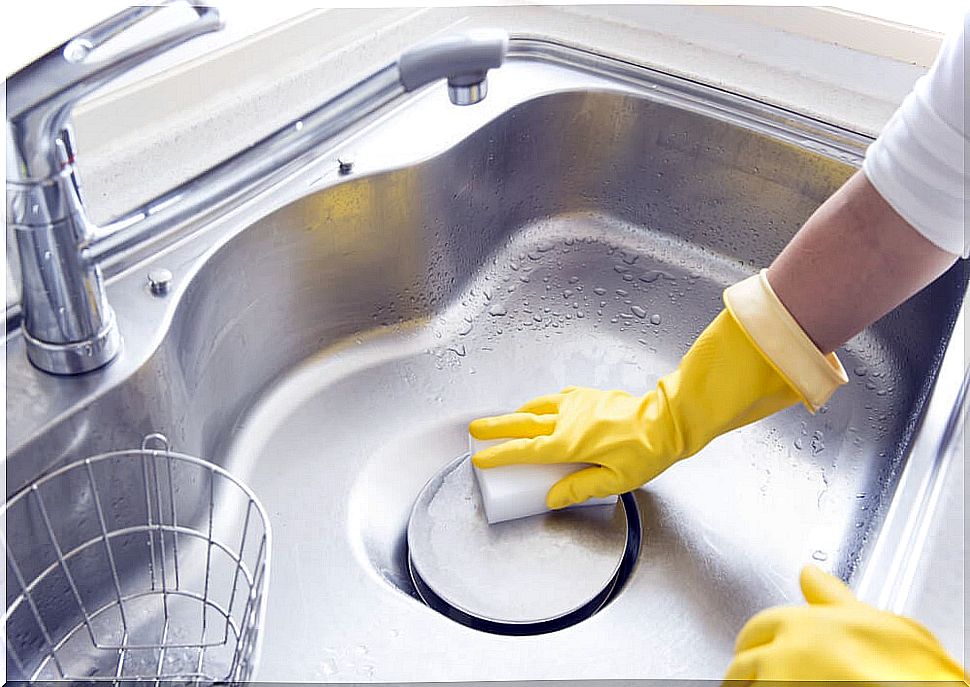
Synthetic material sinks, as well as those made of resin and mineral composite, are characterized by their resistance and durability. Therefore, its cleaning and disinfection is relatively simple, beyond certain basic care.
Again, using mild, non-corrosive soaps is the best alternative. As these are smooth surfaces, you should not use steel sponges or any other element that can scratch them irreparably. Finally, drying the sink after each use is a great way to extend its life.
6. What to do with glass sinks?
The current trend has made glass sinks become one of the first options when it comes to bathroom furniture. However, these pose great uncertainty for their owners: are they cleaned the same as all the others?
The answer is no. On these occasions, it is recommended to use glass cleaners or a mixture of water and vinegar. After a thorough rinsing that includes the joints and the outside of the sink, it will only remain to dry with a dry cloth.
In general, we can conclude that common soaps and natural elements such as bicarbonate, lemon and vinegar meet most of the demands when washing and disinfecting sinks.
Likewise, in all situations we must avoid metallic objects that can scratch or leave stains on the surfaces of the sinks; Finally, remember that abrasive cleaning products act like sandpaper and can irreversibly corrode materials.
